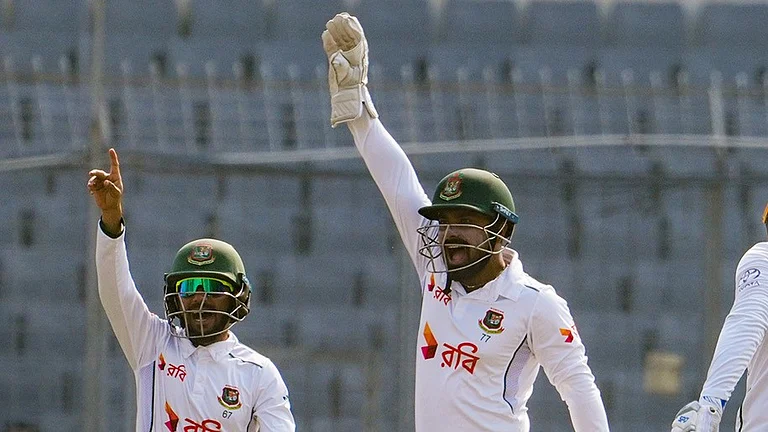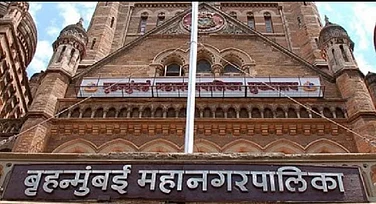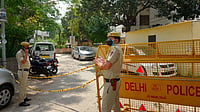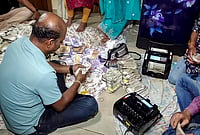India is among the "most frequently" listed destinations in the South Asian region for shipping drugs traded over the darknet even as large pharma companies in the country remain "vulnerable" to diversion of their products for narcotics trafficking, a global anti-narcotics body has said in its latest report.
The Vienna-headquartered International Narcotcis Control Board (INCB) has published its annual report for 2021 putting spotlight on the South Asian and the Indian drugs scenario under the topic 'analysing of the world situation'.
Overall, the report stressed that linkages between "exposure" to social media and drug use needs to be checked.
"The INCB finds increasing evidence of a link between exposure to social media and drug use as platforms offer new opportunities to buy controlled substances and glamourising negative behaviour...," it said.
Talking about the global trend of purchasing drugs over the Internet, in particular on darknet trading platforms using crypto currencies, the report said this phenomenon has continued to spread in the South Asian region.
"India was among the most frequently mentioned destination countries for shipments of synthetic stimulants sold on 19 major darknet markets analysed by UNODC between 2011 and 2020," it said.
UNODC stands for the United Nations Office on Drugs and Crime.
The darknet markets analysed by the UN body include names like 'silk road, silk road 2, pandora, hydra, black market reloaded, agora, evolution, alphabay, berlusconi market, traderoute, valhalla, wallstreet, dream market, cannazon, empire, dark market, hydra market, versus and whitehouse.
Darknet denotes the hidden Internet platforms that can only be accessed using specialised software and pre-configured communication protocols for anonymous communication. Drugs cartels and syndicates are known to use this to stay under the radar of law enforcement agencies.
India's federal anti-narcotics agency, the Narcotics Control Bureau (NCB), had also recently underlined the spurt in drugs-related seizures and usage of the darknet for drugs trafficking in the country.
It recently arrested 22 people after it conducted a pan-India operation where drugs were being transacted over the darknet using crypto currency.
NCB Director General S N Pradhan recently said during a public event that "in the last 5 years, the country has witnessed an exponential increase in seizure of heroin from 2,146 kg in 2017 to 7,282 kg in 2021 which is approximately a 300 per cent increase."
"Similarly, there is increase of 172 per cent in seizure of opium, from 2,551 kg in 2017 to 4,386 kg in 2021, and 191 per cent increase in seizure of cannabis, from 3,52,539 kg in 2017 to 6,75,631 kg in 2021," he had said.
The INCB report also talks about instances of pharma drugs being illegally diverted for narcotics purposes in the country.
"The large chemical and pharmaceutical industries in India are vulnerable to the diversion of products to illicit markets by criminal networks. The global demand for pharmaceutical products has given rise to commercial chemical factories capable of manufacturing large volumes of ephedrine, methamphetamine and other drugs."
"At the same time, as worldwide demand for synthetic drugs and opioids continues to grow, the risk of diversion of illicitly manufactured fentanyl, methamphetamine, opioids and other substances and their trafficking within and out of India is expected to increase," it said.
The report praised India's efforts in squeezing the illegal supply lines of a pharma drug called Tramadol from the country to multiple foreign shores.
"The amounts of trafficked tramadol seized worldwide during 2020 decreased, possibly as a result of regulations on exports of the substance enacted by the government of India in 2018," the report said.
Tramadol is a synthetic opioid-like drug used as a painkiller and global anti-narcotics agencies had found that its shipments originating from Indian and other countries were being illegally diverted for use by ISIS terrorists operating in Syria and other locations apart from other terror groups like the Nigerian Boko Haram.
The report talks about the abuse of opiates and opioids (having opium content).
"Available data on the prevalence of opiate use indicate that the region, primarily India, has the largest number of opiate users worldwide, estimated at 12 million (1.2 crore) people, far more than in any other region," it said.
In India, the report added, that less than 0.2 per cent of the population aged 10–75, or about 1.9 million (19 lakh) people, reported past year use of ATS (amphetamine type stimulant) and an estimated 0.2 per cent of men and 0.01 per cent of women of the same age group, or an estimated total of 1 million (10 lakh) people, reported past-year cocaine use in 2018.
The INCB report said that the Covid-19 linked restrictions do not "seem to have affected interceptions of heroin" in the South Asian region.
"Initial data reported by countries on individual drug seizures indicate an upward trend in the quantities of heroin and morphine seized; this trend appears to have continued throughout 2020."
"Pharmaceutical opioids were also seized, with codeine and codeine-based cough syrups, followed by tramadol, an opioid not under international control, fentanyl and methadone being the most frequently encountered. The largest quantities of pharmaceutical opioids seized in 2019 in the region were reported by Bangladesh and India," it said.
The global body also expressed its concern that the trafficking of cocaine "to and through '' this region was increasing, with India reporting seizing the "largest" amount in South Asia.(With PTI inputs)


























